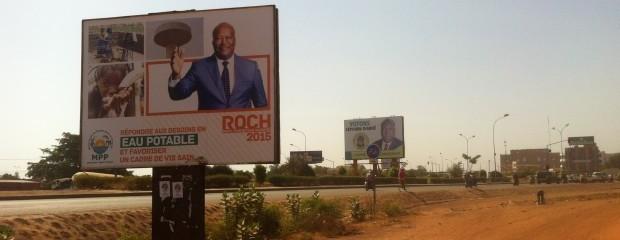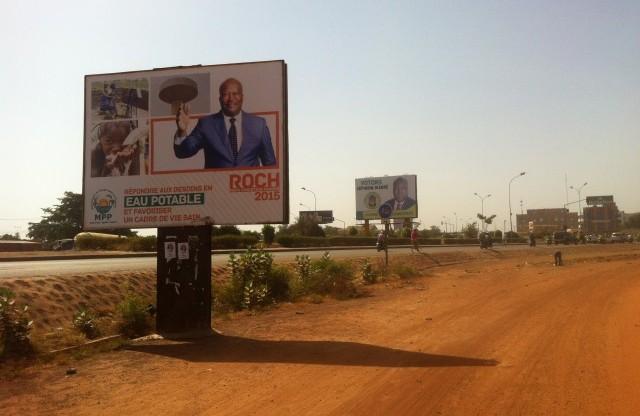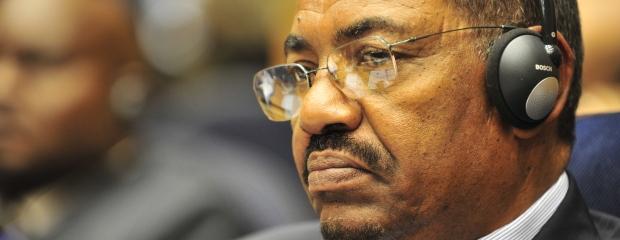How Burkina Faso ensured its freest and fairest elections ever

Through the coordinated mobilisation of voters, civil society and the electoral commission, Burkina Faso made sure its most open election ever was also its most transparent.
On 29 November, the people of Burkina Faso went to the polls to elect their next president and parliament. While the results of the legislative elections are yet to be announced, Roch Marc Christian Kaboré of the Mouvement du Peuple pour le Progrí¨s (MPP) was officially declared President-elect early on 1 December, having won 53.49% of the vote. Runner-up Zéphirin Diabré of the UPC party conceded on Twitter before congratulating Kaboré in person.
As on previous occasions in the past year or so, Burkina Faso provided a shining example of how things can be done in a region where electoral irregularities, allegations of fraud, and violence around polls are not uncommon. A year after a popular uprising thwarted former president Blaise Compaoré’s attempts to remove term limits – a mobilisation which inspired other movements across the continent – and only weeks after civil society, low-ranking soldiers and protestors across the country toppled a coup attempt by the Presidential Guard, the exemplary conduct of the elections strengthens the sense that Burkina Faso is indeed the “˜land of honourable people’.
These elections were historic in that they concluded the political transition set up after Compaoré’s resignation in 2014 and, for the first time in nearly 30 years, did not have Compaoré’s name on the ballot. This meant the stakes were very high for the most open elections in decades, and huge responsibility rested on the shoulders of the electoral commission (CENI) to ensure the smooth running of the polls.
In the run up to the vote, many seemed confident the elections would be fair, but others had some doubts. “It looks like they support the MPP”, a voter at a UPC rally in Ouagadougou told African Arguments.
However, in part thanks to a widespread mobilisation by activists and a range of measures set up by CENI to ensure efficiency and transparency, the election passed smoothly with all observers praising the running of the polls.
Keeping a close eye
Burkina Faso’s elections saw multiple international organisations, including the European Union and West African bloc ECOWAS, send observation missions. But Burkinabí¨ civil society members also crucially took the matter into their own hands.
At many polling stations on Sunday, small groups of voters stayed at polling stations after voting to see for themselves that the process was fair. The Balai Citoyen, a civil society movement which played a key role in the anti-Compaoré mobilisation, had called its activists to do this in a campaign entitled “I vote and I stay”.
In a more formal mobilisation meanwhile, 35 organisations had also come together in July to form the Convention of civil society Organisations for the Domestic Observation of the Elections (CODEL), an umbrella organisation aimed at providing a “harmonised, proactive and civic monitoring of the election process”. Building on its experiences in Senegal, Mali, and Sierra Leone, London-based NGO OneWorld worked with CODEL to set up a “˜civic sentry’ system involving 6,000 observers dispatched across 1,490 polling stations. These individuals transmitted data via SMS to the Ouagadougou situation room, feeding their analysis into a public platform.
“It is a patriotic duty as a citizen”, said one observer in the capital. Mamadi, one of the supervisors working out of the situation room, echoed his words, adding: “It is a national cause. Everybody needs to do their part to get peaceful elections accepted by all.”
On Election Day, observation reports transmitted to the situation room enabled CODEL staff to identify incidents and alert CENI. CODEL identified over 30 “˜major incidents’ which were resolved in partnership with CENI. According to CODEL’s data, 99% of polling stations opened on time or within one hour of the official opening time, and 91% were correctly equipped with all the necessary material.
Despite some unavoidable logistical glitches – such as polling stations opening late due the missing personnel or material, or voters having trouble finding their correct polling station – the organisation of the polls was widely praised by observers.
Collecting the results
To limit the risks of contestation, CENI had promised to communicate the results of the presidential elections 24 hours after the elections, a particularly daunting task in a country where high illiteracy and poor electricity are common obstacles to counting votes.
Results were first collated at the town or city level and then aggregated nationally via an electronic platform. The first trends were made available just 12 hours after the last polling stations closed and were updated throughout the day until provisional results were finally announced shortly after midnight.
CODEL also put in place a parallel system based upon a representative sample of 251 polling stations, which showed a correlation with CENI’s provisional results. Furthermore, some parties such as the MPP, which had delegates in every polling station monitoring the process too, had their own system to collate results.
These multiple and independent methods for scrutinising the results ensured reliability, and prior to the vote, efforts to inform political parties, civil society and the media about CODEL’s process added to citizens’ faith in the conduct of the polls. Once the results were announced, voters quickly accepted the outcome.
“I am really proud because I grew up during Compaoré’s regime and it is the first time I have seen elections that are really transparent”, said one MPP supporter. Meanwhile, even voters who had been hoping for a different result tended to be happy with the process. “I am not too disappointed – the vote was transparent and our leader has accepted the results so it’s alright”, said one UPC supporter.
President-elect Kaboré, who will take office in the coming weeks, will need to deliver on his promises without delays in order to show he can bring real change to the country despite his past association with Compaoré’s regime. If Compaoré former PM is not able to do this, Revolution Square – the rallying site of the uprising in central Ouagadougou – will fill up again, activists have warned.
However, one thing Kaboré does not have to worry about thanks to the smooth running of the polls is allegations of fraud or accusations of a coming to power illegitimately on the back of rigged elections.
Although not everyone in Burkina Faso got the result they wanted, the elections have been accepted and the country’s political transition has ended on a hopeful note thanks to the efforts of CENI, CODEL and both international and domestic observers .
“We’re smiling broadly, we’re sighing with relief,” says CODEL chairman Halidou Ouedraogo. After months of preparation and a few hectic days, he has every right to.
Eloïse Bertrand is a PhD candidate at the University of Warwick working on opposition politics in Burkina Faso and Uganda, and Lead Consultant at AREA Consulting. She tweets at @Eloise_Btd.







